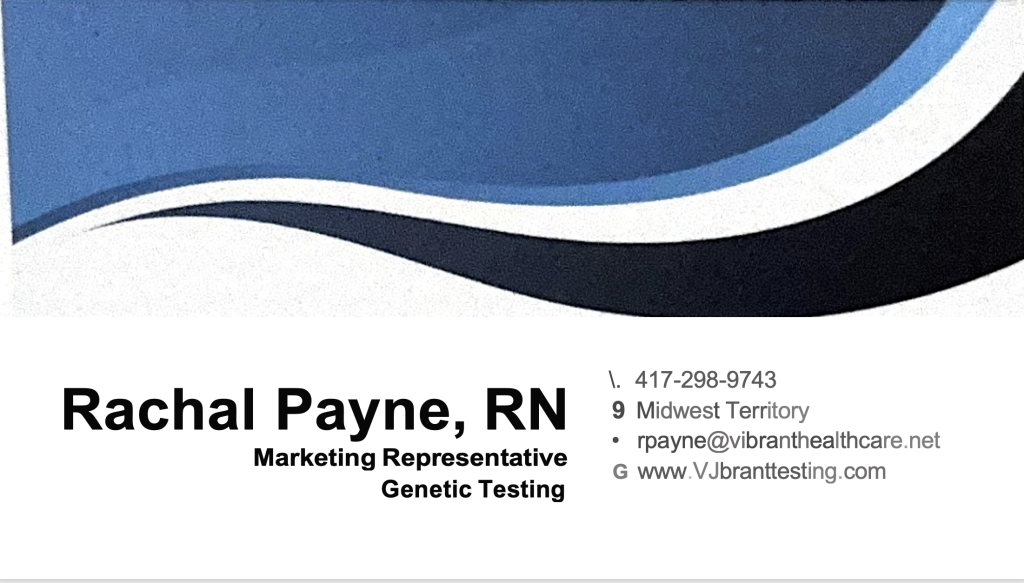
Genetic Testing
What Is the Outcome?
Negative Result
A negative test result means that the laboratory did not find the specific disease-linked variant in a list of genes that the test was designed to detect. Therefore, a genetic variation associated with the disease was not detected.
Positive Result
A positive test result means that the laboratory did find the specific disease-linked variant in a list of genes that the test was designed to detect. Therefore, a genetic variation associated with the disease was detected.
How Can Genetic Testing Benefit Me?
- Identify personal and familial risks
- Receive a more personalized treatment plan
- Medication management
- Lifestyle modification
- Preventative screenings for self and immediate family members
Free genetic counseling is available before and after the test with a certified counselor.
Is Genetic Testing Covered by My Insurance?
Most insurance companies cover the cost of genetic testing. However, whether a specific person will be covered depends on several factors. Vibrant verifies insurance coverage prior to running the test, ensuring you pay nothing out of pocket.
Ask your provider for details.
Immunodeficiency
The immune genetic testing panel may be appropriate for anyone with a personal or family history of frequent infections, fevers, or skin disorders, particularly if infections are recurrent, difficult to treat, require hospitalization, IV antibiotics, or are caused by uncommon organisms.
Cardiopulmonary
The cardiopulmonary genetic testing panel may be appropriate for anyone with a personal or family history of cardiac disorders such as hypertension, heart attack, stroke, arrhythmia, or congenital heart defects, or pulmonary disorders such as asthma, COPD, emphysema, cystic fibrosis, pulmonary fibrosis, chronic bronchitis, or chronic sinus infections.
Thyroid
The thyroid genetic testing panel may be appropriate for anyone with a personal or family history of thyroid disorders such as hypothyroidism, Hashimoto's disease, Grave's disease, goiter, or thyroid nodules.
Cancer
The cancer genetic testing panel may be appropriate for anyone with a personal or family history of cancer.
Diabetes
The diabetes genetic testing panel may be appropriate for anyone with a personal or family history of Type I or Type II Diabetes Mellitus.
Neurocognitive
The neurocognitive genetic testing panel may be appropriate for anyone with a personal or family history of neurological disorders such as Alzheimer’s disease, dementia, Parkinson's disease, multiple sclerosis, migraines, depression, or anxiety.
Comprehensive Eye
The eye genetic testing panel may be appropriate for anyone with a personal or family history of eye disorders such as blindness, color blindness, retinitis, nystagmus, age-related macular degeneration, cataracts, glaucoma, or severe reduction of visual acuity.
PHARMACOGENOMICS (PGX)
TESTING REQUIREMENTS
3 PRESCRIPTION MEDS IN THE FOLLOWING CATEGORIES
- Psychiatric
- Pain
- Cardiovascular Chemotherapy
- Medications can be in the same of different classes
- Must provide the names of all medications
BENEFITS OF PHARMACOGENOMIC TESTING
- Maximizes the intended use of medications and/or treatments
- Reduces the risk of adverse drug reactions
- Reduces the risk of drug-drug interactions
- Potentially decreases the chance of side effects and/or dependency

GET A QUOTE
To set an appointment, kindly contact our office at 417-720-0818 or send an email to [email protected], providing your preferred date and time, along with any specific details regarding the nature of the appointment. Our team will promptly respond to confirm and finalize the scheduled appointment.”
